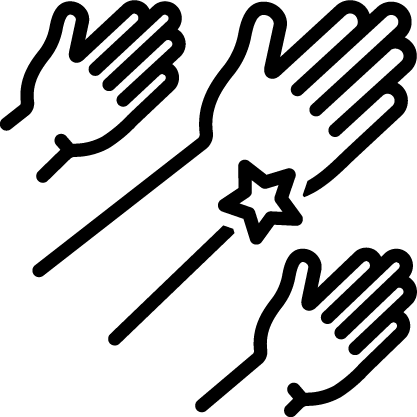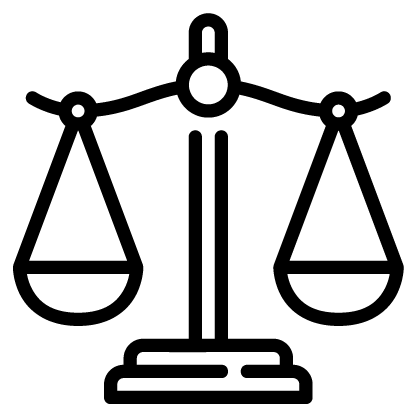LGBTQIA+ resources and support
The LGBTQIA+ community includes people who identify as lesbian, gay, bisexual, bi+, transgender, gender diverse, queer, Intersex, asexual and those who are questioning their identity.
The + acknowledges that the LGBTQIA+ acronym is always evolving, and there are many identities and experiences not fully represented by the acronym.
LGBTQIA+ support at the University of Sydney
Visit the LGBTQIA+ contacts and support page from the University for an overview of support and resources available.
LGBTQIA+ Student Support Liaison Officers (SSLOs)
SSLO’s are staff volunteers who have received specialised training to support students who are affirming their genders. SSLO’s aim to promote inclusion and support for LGBTQIA+ students at the University and can provide information about resources to promote health, safety and connection with other students and the community.
Other support at Usyd
Pride Network
The Pride Network is a Usyd initiative which seeks to ensure the Uni is a safe space for LGBTQIA+ students and staff. They hold various meetings throughout the year.
SHADES
SHADES is a student-run society that organise social events for LGBTQIA+ students and their friends.
SUPRA Queer Network
SUPRA’s Queer Network aims to make Usyd a more inclusive and affirmative space for LGBTQIA+ students. For more information, contact the SUPRA Queer Officer: queer@supra.usyd.edu.au.
Sydney University Law Society (SULS) Queer Committee
SULS queer portfolio provides support to LGBTQIA+ law students.
The Queerspace
A safe space for LGBTQIA+ students to hang out. The Queerspace can be found in room G10 on the ground floor of the Manning Building, Camperdown Campus.
Usyd Queer Action Collective (QuAC)
QuAC is the undergrad queer collective, seeking to make Usyd and the wider community a better place for everyone. QuAC runs social events and regularly meets in The Queerspace.
For more information visit the SRC or contact queer.officers@src.usyd.edu.au.
LGBTQIA+ services in NSW
ACON
ACON offers a range of free and affordable counselling services for LGBTQIA+ adults in NSW. Services include Pride Counselling, Care Coordination, HIV Counselling, Substance Support and Home-Based Care.
Headspace Camperdown Queer Group
A group for LGBTQIA+ young people aged 12–25 to hang out and connect.
Twenty10
An LGBTQIA+ organisation based in Chippendale. For young people aged 12–25 they offer counselling, case work and transitional housing services. They also offer social support services that include drop-in and social events. Twenty10 offers referral support and information for people of all ages.
The Gender Centre
The Gender Centre provide a range of services for trans and gender-diverse people across NSW, including counselling, casework, and accommodation.
TransHub
TransHub is ACON’s digital information and resource platform for all trans and gender diverse people in NSW, their loved ones, allies, and health providers. Includes information on school and university, and for educators and allies. Check out the Trans Vitality Toolkit.
QLife
Free, anonymous LGBTQIA+ peer support phone and webchat service, available every day of the year from 3pm to midnight.
LGBTQIA+ allyship at the University
There is no one way to be an ally to the LGBTQIA+ community. Below are some simple ways to demonstrate your support.
Name and pronouns
Using the correct name and pronoun for your peers and students is an easy and important way to make someone feel welcome and respected.
Find out more about pronouns on Trans Hub.
Consider modelling this by updating your pronouns in Sydney Student, Canvas and in your email signature. Find information about changing your personal details.
Creating a culture of respect
In the University setting, this might look like providing LGBTQIA+ information and resources in communal areas, putting up LGBTQIA+ affirmative posters, or coordinating training for students and staff.
Stepping in to stop harassment
If other people in the University are being discriminatory or disrespectful, sometimes allies can intervene to say when behaviour isn’t ok. Read the Uni’s advice on how to be an active bystander.
Get involved
Look out for opportunities to get involved in LGBTQIA+ events and organising at the University.
Language and terminology
Asexual: a person who experiences little or no sexual attraction to other people. Asexual is an umbrella term that includes identities such as demi-sexual and grey-ace. For more information visit Australian Asexuals.
Bisexual/Bi+: people who are attracted to more than one gender. Bi+ can be used as an umbrella term that includes other identities such as pansexual and demi-sexual. For more information visit Sydney Bi+network.
Brotherboy: is a term used by Aboriginal and Torres Strait Islander people to describe gender diverse people that have a male spirit and take on male roles within the community. Brotherboys have a strong sense of their cultural identity.
Cisgender/cis: someone whose gender aligns with what was presumed for them at birth.
Gay: people attracted to people of the same gender as themselves. Historically used by men who are attracted to men.
Intersex: people with variations of sex characteristics. Intersex people have sex characteristics that don’t fit medical norms for male and female bodies. For more information about intersex, visit IHRA.
Lesbian: women who are attracted to women.
Non-binary: refers to people who are not exclusively male or female, including people who have no binary gender at all and people who have some relationship to binary gender.
Pansexual: refers to a person who is sexually or emotionally attracted to someone, regardless of their gender or sexuality.
Queer: is an umbrella term used for anyone who doesn’t identify exclusively as heterosexual. Some people may use ‘queer’ or ‘genderqueer’ to describe their gender identity or expression.
Sistergirl: is a term used by Aboriginal and Torres Strait Islander people to describe gender diverse people that have a female spirit and take on female roles within the community, including looking after children and family. Many Sistergirls live a traditional lifestyle and have strong cultural backgrounds.
Trans and gender diverse: umbrella terms that refer to people whose gender is different to what was presumed for them at birth. Includes binary and non-binary trans people, Sistergirls and Brotherboys. For more information visit Trans Hub.
Download this article as a Word document
Download this article as a PDF
Written by SUPRA Postgraduate Advocacy Service March 2023
Need help?
Our casework and legal services are here for you.

Postgraduate Advocacy Service
Our caseworkers can help with any problems you face while you study at Usyd, from academic appeals to renting.


Stay in touch with us